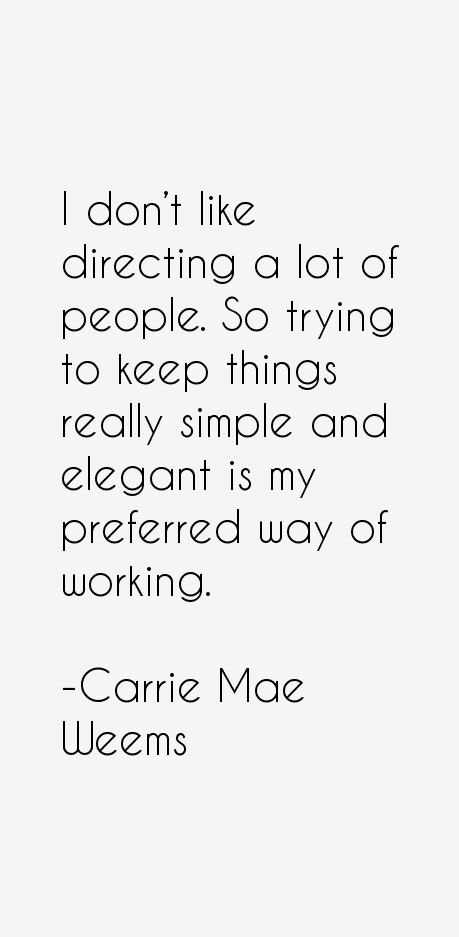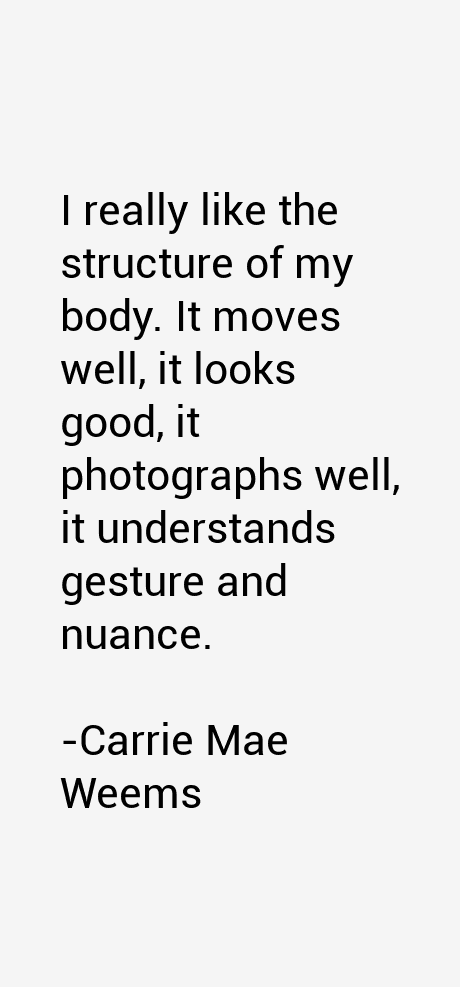Carrie Mae Weems Quotes & Sayings
10 most famous Carrie Mae Weems quotes and sayings (photographer).
“It's impossible to change the social without changing the personal - you have to put your money where your mouth is. And if you're not making those challenges at home, it's unlikely you'll make them in a larger setting.”
“I got my first camera when I was 21 - my boyfriend gave it to me for my birthday - but at that point politics was my life, and I viewed the camera as a tool for expressing my political beliefs rather than as an art medium.”
“I come from a family of Mississippi sharecroppers just a few generations away from slavery, and I experienced a lot of racism growing up - you can't avoid that if you're a person of color in this country.”
“The ideas I'm working with are ideas I'm committed to. I don't know how to soft-shoe them. I don't know how to make them more palpable. I just never knew how to be one of those girls. I wish I knew how to be that sometimes, but I don't know how to be that way.”

“I don't like directing a lot of people. So trying to keep things really simple and elegant is my preferred way of working.”

“I emerged in that incredible moment in the 1980s when all kinds of social questions about subjectivity and objectivity, about who was making, who was looking.”
“I think that still, for the most part, even in 2010, the vast majority of museum shows and gallery shows and gallerists are pretty much dominated by men. So having a sense of what women are up to, for me, frankly, is very, very important.”
“In terms of digital photography, I continue to print and use film for the most part. I still shoot with film, 21/4 film specifically, and I love it. I love it because I know what it does, how it really responds to light.”

“I really like the structure of my body. It moves well, it looks good, it photographs well, it understands gesture and nuance.”
“My father was very interested in music, and when he and his brothers were young, they had a singing group that used to open for Sam Cooke. There was always music in our house, but there wasn't much art around.”
Carrie Mae Weems Quotes Rating
No Ratings Yet
Leave A Comment
























